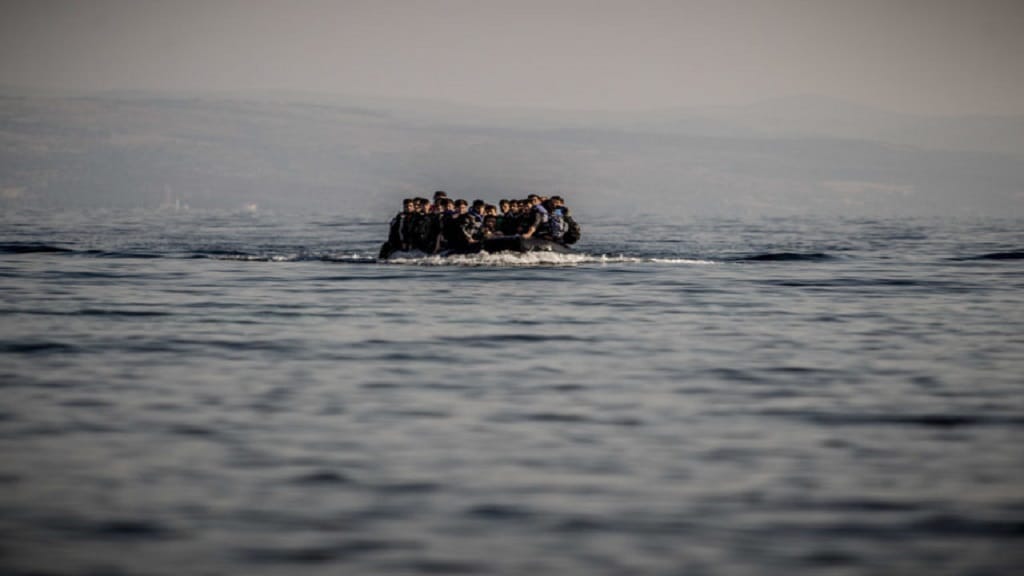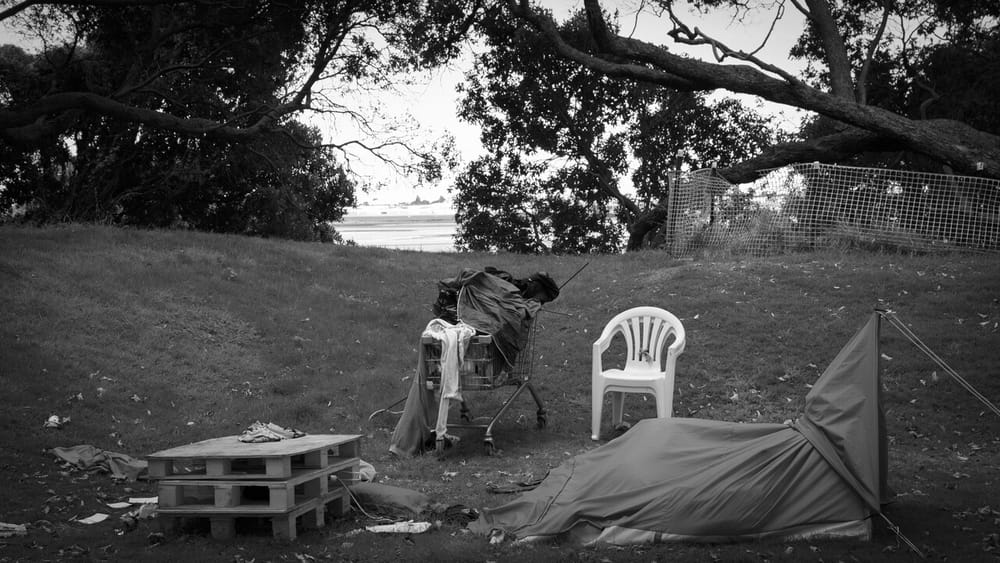On April 22, 2024, government officials of the United Kingdom (UK) officially passed the Safety of Rwanda Bill. Under this legislation, asylum seekers who arrive illegally in the UK will be deported to Rwanda. According to the Conservative government, the Safety of Rwanda Act will deter asylum seekers from pursuing dangerous and illegal routes into the UK. Former Prime Minister Rishi Sunak said, “the passing of this landmark legislation is not just a step forward but a fundamental change in the global equation on migration.”
Carenza Arnold, Communications Manager for Women for Refugee Women, and Anastasia Gavalas, Communications Officer at the Migrants’ Rights Network, spoke to The Lovepost about the far-reaching implications of the proposed bill. Arnold, with a background in human rights and social justice, has been at the forefront of campaigns to protect refugee women from violence and discrimination. Her work has been instrumental in raising awareness about the unique challenges faced by this vulnerable group and in pushing for policy changes to ensure their safety and wellbeing. Gavalas, who has a strong foundation in international relations and migration studies, has been actively involved in grassroots movements and policy advocacy to support migrant communities. Her efforts at the Migrants’ Rights Network have focused on dismantling systemic barriers and promoting inclusive policies that recognise the contributions of migrants to society.
“The Rwanda Act is an inhumane, harmful, and disproportionately expensive way to handle the asylum claims of vulnerable individuals,” Arnold says. “The Act is also completely unworkable, due to both its unlawfulness and due to operational logistics.” The Rwanda Bill is expected to cost the UK 541 million GBP and there is no evidence to suggest that the plan will successfully deter asylum seekers entering the country via boat or lorry.

In November 2023, the Supreme Court ruled that the Rwanda Bill was unlawful and incompatible with the UK's human rights obligations. The court found the Bill to be unlawful due to the risk of refoulement and Rwanda's history of poor human rights practices. The 1951 Refugee Convention, which defines the status of refugees, outlines how countries should protect and uphold their human rights. A key principle of this convention is non-refoulement, meaning no refugee should be returned to a country they fled from. If the Rwandan government were to return refugees to their home country, the UK would breach its legal obligation of non-refoulement under both international and domestic law. Despite these legal concerns, the Conservative Party pushed the Rwanda Bill through Parliament.
Former Prime Minister, Sunak had previously indicated that he wanted the UK to leave the European Convention on Human Rights (ECHR). The ECHR is an international treaty that works to uphold human rights and political freedoms. It was drafted after the Holocaust to ensure that no government could cause the same atrocities and human suffering that occurred during the Second World War. The UK was instrumental in the creation of the treaty and it was drafted under the supervision of Sir David Maxwell Fyfe. Some politicians have argued that the ECHR interferes with UK sovereignty, especially in relation to matters of national security. Newly appointed Prime Minister Keir Starmer has not expressed an interest in leaving the ECHR, but the Conservative party is still calling for the UK to withdraw from the treaty. If the UK was to leave the ECHR, the government would not be obligated to protect and support refugees in crisis.
After the Second World War, the UK was considered a safe haven for refugees who had been displaced. The passing of the Rwanda Bill tarnishes this track record and puts the UK in line with the anti-migrant rhetoric that has been rising across the world over the past decade. In this rhetoric, an attitude of hostility and fear is being fostered towards refugees and they have been painted as security threats and opportunists, rather than a group of people who only want access to safety. This sentiment was echoed by the UK’s Home Secretary Suella Braverman when she stated that a “hurricane” of migrants is coming to UK shores and branded the crisis as an “existential challenge for the political and cultural institutions of the West.”
Gavalas, from Migrants’ Rights Network, believes that the passing of the Rwanda Bill will only cause further distress and oppression to an already vulnerable group. She adds that, since the Bill's passing, refugees are living in fear of being detained and sent to Rwanda. “People seeking asylum in our network have told us about the psychological impact the Rwanda Plan is having on them,” Gavalas says. “They have already gone through so much on their journeys to the UK and in the hostile asylum system, that the threat of being sent to Rwanda is instilling fear among them.”

Arnold, from Women for Refugee Women, underscores the severe anxiety induced by the Rwanda Bill: “For one woman in our network, she was so terrified by the news and fear that she would be taken to detention, that she left her asylum accommodation and chose to sleep in the park — despite all the dangers this carries for a young woman.” The anti-asylum laws put in place in the UK further traumatise those who only want to escape the dangerous situations that led them to flee their country. There are 37.6 million refugees worldwide, and studies show that 40 percent of refugees suffer from post-traumatic stress disorder.
The Rwanda Bill has drawn comparisons to Australia's offshore policy which was also designed to send asylum seekers to other countries to ‘stop the boats.’ In Australia, the offshore model detained asylum seekers and sent them to Nauru and Manus Island. Australia's offshore policy has been heavily criticised for its cruelty and inhumanity. Iranian Kurdish refugee Behrouz Boochani, was among those who were sent to a detention centre on Manus Island. He spent seven years detained on the island located in Papua New Guinea. Since his release, he has shed light on the inhumane treatment and the human rights violations that he was subjected to.
During his time on Manus Island, Boochani witnessed people die from neglect and murder. Fourteen people died in the offshore detention centres and countless refugees came forward with accounts of violence, abuse and neglect. In his book, No Friend But the Mountains, Boochani provides a first-hand account of the suffering that took place on Manus Island. He writes:
Horrified mothers . . . mothers wrapped their children within the instincts of motherhood and escaped to the mountains. Young girls were searching for their dreams within the hearts of men rounded up into groups — so many groups — and being led down a road to the front lines of war. Groups — so many groups — returned as corpses. Again, it is those same chestnuts that became the solace for buried dreams.
Boochani was freed after seven years and now works as an activist to highlight the suffering that he and many other refugees endured at the hands of the Australian offshore policy. Speaking to the Sydney Morning Herald he says, “I cannot get away from it—my activism. I still feel responsible to expose more of what happened there. Of course, it is not my job to do this—but I am an activist through my writing.”
Similar to the Rwanda scheme, the policy was devised to act as a deterrence measure for those entering the country through dangerous methods. It’s a scheme that cost Australian taxpayers 8.3 billion AUD between 2014 and 2020. Evidence shows that the offshore policy failed to deter asylum seekers from entering the country via boat. According to Madeline Gleeson, senior research fellow at the Kaldor Centre for International Refugee Law at the University of New South Wales (UNSW), “Offshore processing failed to achieve its stated objectives of ‘stopping the boats’ or ‘saving lives at sea.’ During the height of this policy, more asylum seekers were trying to reach Australia by boat than at any previous time.” The circumstances on Nauru and Manus Island became so dire that the refugees had to be evacuated and sent back to Australia. The detention centres were empty for some time, but Australia has begun slowly sending refugees back to the island. Filippo Grandi, United Nations High Commissioner for Refugees (UNCHR), has said that Australia’s offshore policy has caused “extensive, avoidable suffering for far too long.”
The shortcomings of the offshore policy should act as a warning to lawmakers in the UK but, instead, the policies have been replicated. Furthermore, many other countries across the globe have expressed interest in implementing similar anti-asylum seeker laws. The far-right Prime Minister of Italy Giorgia Meloni, has established a controversial plan for Albania to shelter up to 3,000 migrants while their asylum seeker claims are processed. This rise of anti-asylum laws has created a refugee crisis that has left millions displaced across the world.
The human rights of refugees may be diminishing but what is the solution? Arnold believes that in order to solve the refugee crisis we must work together to offer safe routes and support to those who are in need. She states, “The framing of immigration policies in terms of ‘deterrence’ is not only cruel and dehumanising, but evidence shows that such ‘deterrents’ do not work.” Over the years, Western countries have put more focus on spending millions on border control and policies that will act as deterrents. Arnold adds, “People are forced to take dangerous journeys, such as crossing the Channel on a boat, because there are no safe routes available. If the Government wants to reduce the numbers of people making dangerous journeys, it must increase the availability of, and access to, safe routes to claim asylum in the UK.”

Also key to solving the refugee crisis is understanding its root cause. Britain has a long-standing and exploitative history of colonising countries in the Middle East, Africa and Asia. Western colonisation and imperialism has led to wars, political unrest, famines, poverty and climate catastrophe. Consequently, this has resulted in a mass exodus of people leaving their homes in search of a better life. The reasons for this mass-migration are complex, but the British Empire’s role in creating such harrowing situations that force people to flee must be acknowledged. Thus, the UK has a moral responsibility to safeguard refugees, considering its influence in creating the political, social and environmental issues that remain in colonised countries.
Gavalas agrees with the sentiment that the UK has a responsibility to protect refugees. She states, “We have a duty to welcome people seeking safety, especially when they continue to escape conditions that our government has had a hand in creating. The UK and all colonising states must provide material and financial reparations to countries that continue to face the repercussions of colonisation, or wars we have initiated, so that no more people are forced to leave their homes.”
It is evident that the anti-asylum policies put in place by Western governments are failing to solve the refugee crisis, and that establishing more humane and sustainable legislation will do more to ensure the safety of refugees. Currently, it is not possible to seek asylum from outside of the UK, but safe and legal pathways would decrease the number of refugees risking their lives to reach safety. The UK does have resettlement and family reunion schemes available to refugees but these are only offered to a fraction of refugees who need support. Statistics from the Refugee Council show that 736 people were granted protection through resettlement schemes last year — more than a third (38 percent) fewer than the previous year.
When the war in Ukraine broke out, European countries acted quickly in responding to the crisis by offering aid and shelter. Approximately 6 million refugees fleeing Ukraine have been recorded across Europe and 4 million of them have been granted temporary protection, which allows them to reside, seek employment, and attend school in the European Union. However, non-Ukrainian refugees have not been afforded the same treatment. According to the Harbour Project, many Ukrainians were offered immediate refugee status and were granted access to live in people’s homes, but refugees from Afghanistan were left in hotels for months. Studies show that the public has warmer attitudes towards Ukrainian refugees than towards refugees from Syria, Afghanistan and Somalia. But the response to provide humanitarian aid and protection to Ukrainian refugees should be the norm. Western countries must offer the same level of solidarity to all refugees, regardless of skin colour, religion and country of origin.
Collectively, politicians and governments in the West must be pushed to implement compassionate and sustainable laws that will offer support to migrants in vulnerable circumstances. As the Australian offshore policy has shown, deterrents and border control fail to provide a solution for the millions of people displaced across the world, and the Rwanda scheme will cause further trauma and suffering to those seeking refuge.
The response to the war in Ukraine is evidence that Western countries have the capacity to support refugees in crisis. This humane approach needs to be applied to all migrants, not just those who are from predominantly White, Christian countries. Human rights must be upheld without prejudice and the most vulnerable protected. Everyone deserves a life of dignity, respect and equality.







